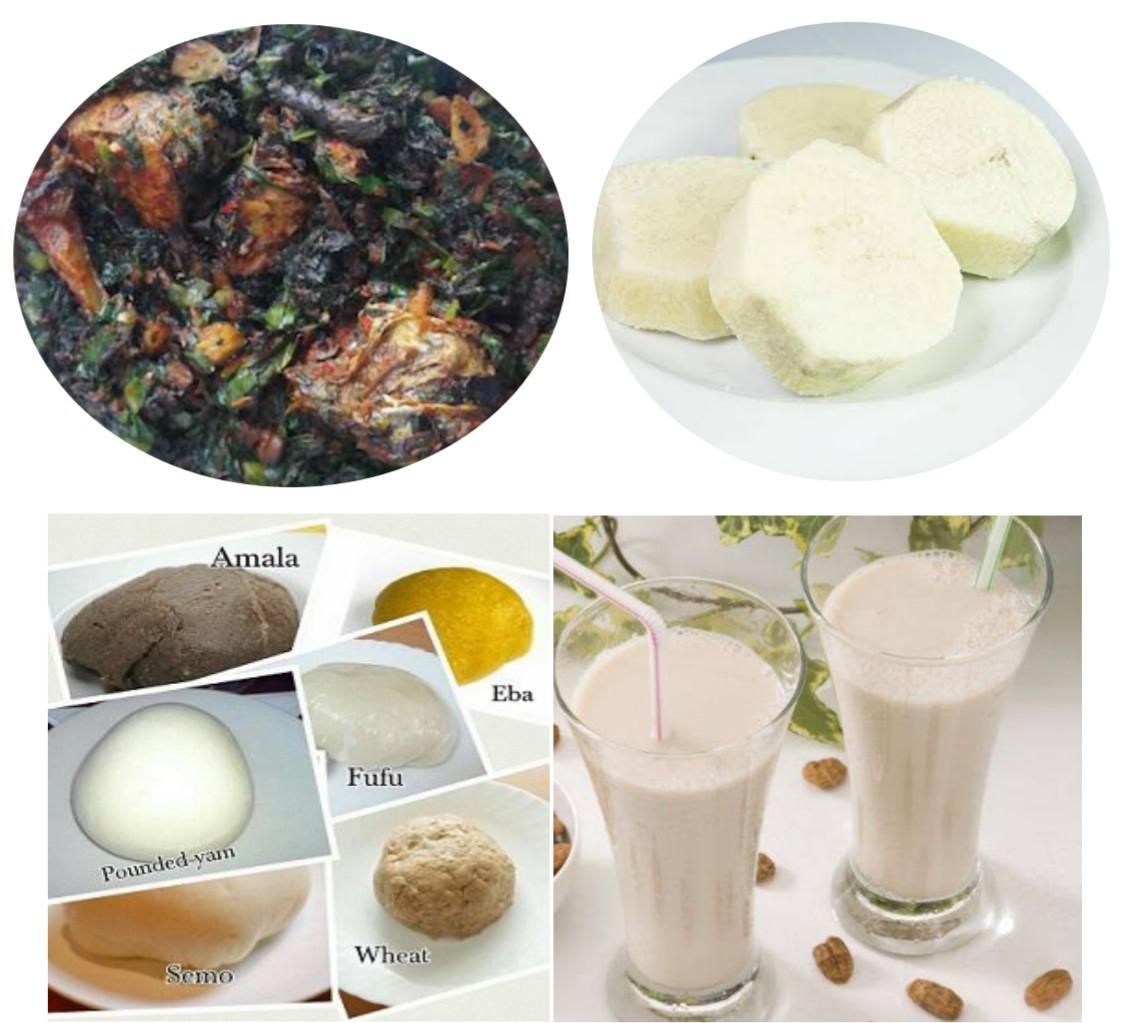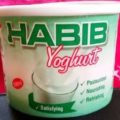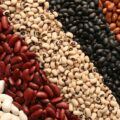Dietary fiber or fiber is made up of the indigestible parts or compounds of food, which pass relatively unchanged through our stomach and intestines. Fiber is mainly a carbohydrate. The main role of fiber is to keep the digestive system healthy. Other terms for dietary fiber include ‘bulk’ and ‘roughage’, which can be misleading since some forms of fiber are water-soluble and aren’t bulky or rough at all.
There are two types of fiber: soluble and insoluble. While both are important, the two function differently in the body. Here’s how:
Soluble fiber. is a type of fiber that attracts water and forms a gel. This gel causes a slowing of the digestion process, which can be beneficial for weight loss. Foods high in soluble fiber include oats, legumes, edible plant skins, and nuts.
Insoluble fiber. is the type of fiber that, you guessed it, repels water. You can find insoluble fiber in foods such as veggies, fruits, nuts and seeds, wheat bran, and whole-grain foods like whole-wheat pasta and brown rice. Its primary benefit is to provide bulk to stool and aid in the movement through the digestive tract.
Most diets have a combination of soluble and insoluble fiber, with 75 percent coming from insoluble fiber and 25 percent coming from soluble fiber.
Health Benefits of the Fiber
Fiber may actually help you live longer. Studies suggest people who eat a higher intake of fiber tend to have lower rates of heart disease, obesity, type 2 diabetes, stroke, high blood pressure (hypertension), and digestive diseases. The health benefits of fiber include:
Weight Loss. Research suggests nutrients like fiber can play a major role in body weight. (Normal-weight and overweight people have been found to have a higher intake of dietary fiber than obese individuals. Fiber expands and bulks food in your GI tract, slowing digestion. This can increase satisfaction with your food and helps stabilize blood sugar levels.
Digestive Disorders. Fiber is like nature’s scrub brush, keeping your body’s pipes clear and reducing carcinogenic activity. One benefit of getting enough fiber in your diet is reducing the risk of diverticulitis, a condition in which pouches formed in the colon become infected. Fiber helps keep food clear from the pouches and moving through the digestive tract. Aim to take in 25 to 40 g of fiber per day to reduce your risk of diverticulitis.
Cholesterol and Blood Pressure Reduction. Fiber’s wondrous effect on the body is a great example of medical nutrition therapy (MNT), a technique registered dietitian nutritionists (RDN) use on their patients to reduce the need for medication while improving health outcomes. When you eat food with fiber, the fiber binds to the bile salts, preventing them from being recirculated for the next time you eat. As a result, your body must produce more bile salts by taking cholesterol from the liver. This is how soluble fiber reduces blood cholesterol.
List Of Nigerian Foods Rich In Fibre
Semovita
A 1/3-cup (56-gram) serving of uncooked, enriched Semovita flour packs over 2 grams of fiber or 7% of the RDI for this nutrient. Dietary fiber provides many benefits for your digestive system. For example, it stimulates the growth of friendly gut bacteria. A healthy balance of gut bacteria affects many areas of health like optimal digestion, immune health, and metabolism. Additionally, fiber intake promotes regular bowel movements and may help treat constipation. For instance, a two-week study found that people who ate 5 grams of additional whole-grain fiber daily had improvements in constipation and less bloating. READ MORE ON Health Benefits and Side Effects of Semovita
Garri
Garri is rich in high fiber content which helps in digestive health. Garri can be soaked in cold water with milk to make it creamy, and when consumed, the fiber content in it helps to make one fuller, helps in quick digestion, and sustains one from hunger for some time.
A 3.5-ounce (100-gram) serving of garri contains 112 calories and 1 gram of fiber. The fiber content in garri helps in weight loss as it reduces appetite and as well reduces the chances of other health conditions such as heart and other cardiovascular diseases, cancer, and diabetes. But in as much as the fiber is good for the digestive system, taking too much of it can cause stomach cramps or bloat. READ MORE ON Health Benefits and Effects of Garri In The Body
Kunu Aya and Fura
Kunu aya is a Northern Nigerian beverage made from a mix of tiger nuts, coconut, dates, and ginger. It is an absolutely nourishing drink, rich in numerous nutrients including fiber and vitamin E. In Nigeria, ‘Kunu’ refers to a locally made beverage that can be made from different cereal grains.
Tiger nuts are also presumed to contain resistant starch, a type of fiber that can feed the friendly bacteria in your gut, helping your digestion run smoothly. In addition, tiger nuts may contain enzymes, such as catalases, lipases, and amylases, which help break down foods in your gut, relieving gas, indigestion, and diarrhea.
As a healthy Nigerian food, fura is made from millet a gluten free grain with lots of minerals and vitamins. Millet is also part of our body’s ecological foods as it acts as a probiotic to feed important microflora in our inner ecosystem. Eating foods high in insoluble fiber, like fura da nono, can help women avoid gallstones, according to a study published in the American Journal of Gastroenterology. Studying the overall fiber intake and types of fiber consumed over a 16 year period by over 69,000 women in the Nurses Health Study, researchers found that those consuming the most fiber overall (both soluble and insoluble) had a 13% lower risk of developing gallstones compared to women consuming the fewest fiber-rich foods. READ MORE ON Amazing Health Benefits of Kunu Drink
Yam
Yams are not only an excellent source of fiber but also high in potassium and manganese, which are important for supporting bone health, growth, metabolism, and heart function. Whether pounded, boiled, or fried, these tubers also provide decent amounts of other micronutrients, such as copper and vitamin C. Copper is vital for red blood cell production and iron absorption, while vitamin C is a strong antioxidant that can boost your immune system. READ MORE ON Health Benefits and Side Effects of Pounded Yam
Akamu and Oats
Akamu is made from different kinds of cereals which are a very rich source of fiber that helps in protecting the body and keeps your digestive system healthy. Pregnant women are encouraged to take akamu during pregnancy as they can benefit tremendously from its fiber content because fiber helps keep pregnancy weight gain under control.
In addition, oats are an incredibly nutritious food packed with important vitamins, minerals, and antioxidants. In addition, they’re high in fiber and protein compared to other grains. Oats contain some unique components — in particular, the soluble fiber beta-glucan and antioxidants called avenanthramides. READ MORE ON: Quaker Oats: Uses, Health Benefits, Side Effects
Nigerian Vegetable Soups
Nigeria vegetable soups are a rich source of healthy fiber. Nigerian vegetable soups are quick and easy to cook, a very versatile soup that can be used for swallowing, and eaten with rice, yam, plantains, and even potatoes which are equally good sources of fiber. Examples of this fiber rich Nigerian soups include:
Miyan kuka: a traditional Nigerian soup. It’s made with a combination of dried and ground baobab leaves as the main ingredient.
Ewedu soup: a simple Nigerian dish made with ewedu leaves (also known as jute or molokhia leaves) as the key ingredient. The rich fiber leaves are typically simmered in boiling water with ingredients such as egusi (ground African melon seeds).
Bitter leaf Soup: a fiber rich traditional soup originating from Eastern Nigeria. It’s made with a combination of bitter leaf, cocoyam paste, red palm oil, dried fish, beef and tripe, crayfish, seasoning cubes, and a traditional seasoning called ogiri igbo.
Edikaikong: a Nigerian soup that is especially beloved because it is a valuable source of nutrition fiber and vitamins. It is prepared with, ugwu leaves and waterleaf. READ: Is African Food Healthy?






